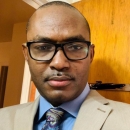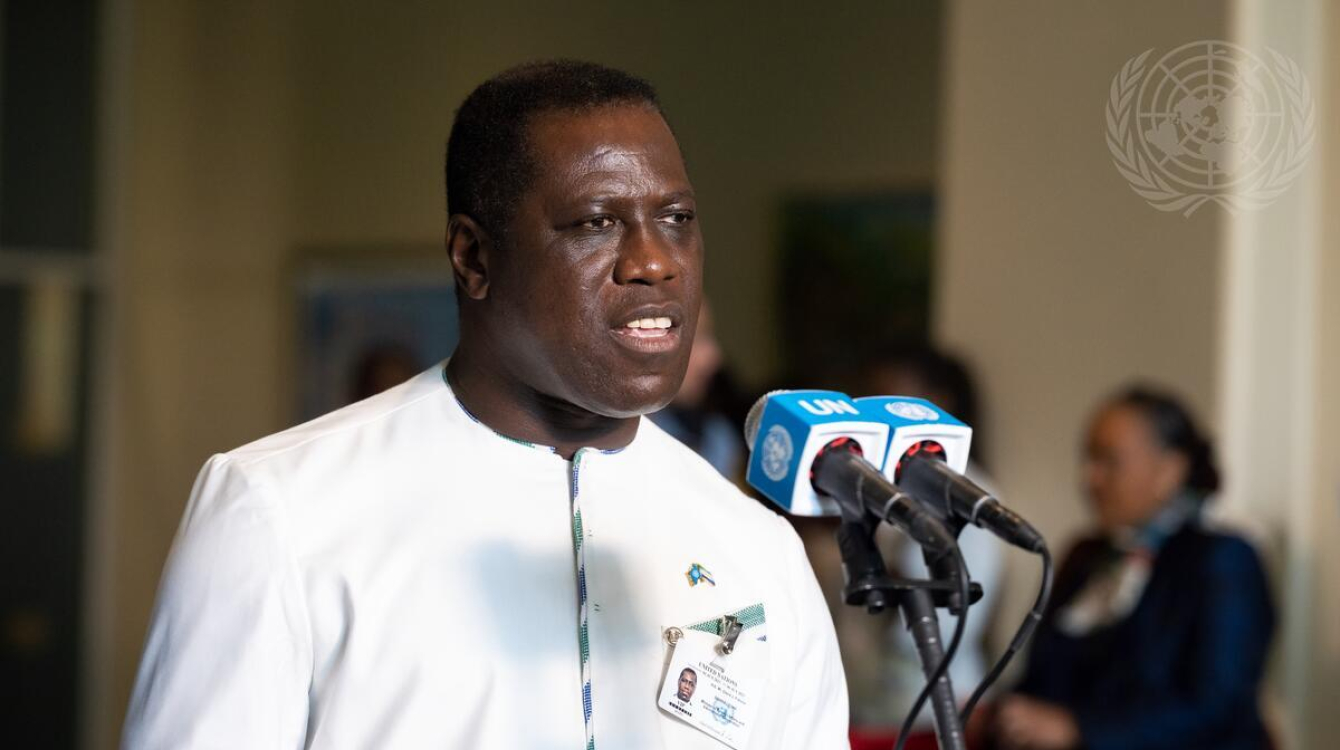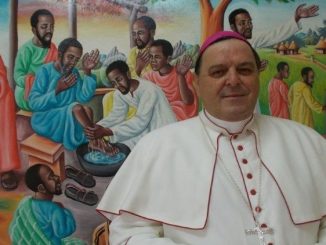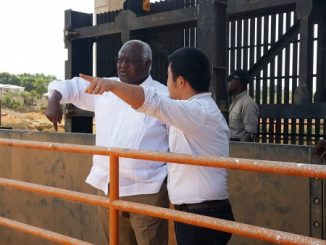As a UN Security Council member, Sierra Leone will promote peace, security and good governance in Africa
Sierra Leone achieved a significant milestone on 6 June when it was elected to a non-permanent seat on the UN Security Council for the period 2024 to 2025. Minister of Foreign Affairs and International Cooperation, Prof. David Francis spoke to Africa Renewal’s Kingsley Ighobor on what this means for Sierra Leone and Africa, and the priorities that the country intends to promote during its tenure. The following excerpts are from the interview:
What is the significance of this achievement for your country, but also for Africa?
Today marks a momentous day for Sierra Leone. We are returning to the UN Security Council in the non-permanent category after 53 years. Being voted for by 188 countries [there are 193 UN member states] is a demonstration of the respect for Sierra Leone.
Sierra Leone is no longer defined by its troubled past. Today we are considered a liberal, progressive, confident and enterprising nation.
As you know Sierra Leone is the Chair of the African Union Committee of 10 (C-10) for the reform of the UN Security Council. Algeria, another C-10 member, was today also elected to the non-permanent category of the Security Council. This means that in 2024 and 2025, two C-10 members will amplify our collective voice to promote and defend the common African position for the reform of the UN Security Council.
What factors have contributed to your lengthy absence from the UN Security Council, and how were you able to get back in?
Sierra Leone’s absence can be attributed to several factors, including a difficult period marked by a brutal civil war, bad governance and near-state failure.
When you are in a period of bad governance, inefficient political and economic management of the state and civil war, you don’t have time to come to the UN Security Council. Nobody will vote for you because they will not respect you.
However, the country was able to regain its position through a series of positive developments. The interventions of the UN and the West African peacekeeping force, ECOMOG, played a crucial role in helping Sierra Leone recover from the civil war and rebuild itself.
We transitioned from war to peace, on a path towards democratic consolidation. We are now regarded as a successful case of post-war peacebuilding and state reconstruction.
In 2018, Sierra Leone was ranked as one of the most corrupt countries in the world. However, through focused efforts, Sierra Leone managed to improve its score on the Millennium Challenge Corporation’s Control of Corruption index, from 49% in 2018 to 83%, in 2022.
As the Foreign Minister, I mobilized our diplomatic missions, particularly in New York, Geneva, Nairobi, Addis Ababa, and Abuja, to advocate for and secure the seat on the UN Security Council. This effort was challenging, especially considering that Nigeria was also vying for the position. However, Nigeria, under the leadership of former President Mohammadu Buhari, demonstrated magnanimity by ceding the opportunity to Sierra Leone.
We are returning to the UN Security Council in the non-permanent category after 53 years. Being voted for by 188 countries [there are 193 UN member states] is a demonstration of the respect for Sierra Leone. Sierra Leone is no longer defined by its troubled past
You mentioned at the campaign launch last year that your priorities would be promoting peace and security, empowerment of women and youth, addressing climate change and others. On women and youth, what initiatives do you have back home that demonstrate your commitment to these goals?
We have seven strategic priorities but let me focus on women and youth. Our government recognizes the importance of investing in human capital development, particularly prioritizing women and youth. With women comprising around 52 per cent of our population, it is essential to focus on empowering them.
To advance gender equality and women’s empowerment, we passed the groundbreaking Gender Equality and Women Empowerment Act last year 2022. This legislation ensures a minimum quota of 30 per cent for women in elective positions, appointed roles, and access to private capital from banks.
Similar efforts have been made to empower the youth. We have created opportunities for skills training and development such as the Youth Agricultural Farms where young people are contributing to food security and getting vocational and technical education.
In the UN Security Council, we aim to share our experiences with the rest of the world.
There are still many troubled spots in Africa. In the 1990s, the war in Liberia spilled over to Sierra Leone. Now Guinea, another neighbouring country, is undergoing a political transition following the coup d’état of September 2021. How are you contributing to the restoration of democracy in that country?
Military coups are a threat to the peace, security, and stability of our sub-region. Currently, transitional authorities in Mali, Burkina Faso and Guinea are in Mali, Burkina Faso and Guinea.
We cannot allow Guinea to be affected by large-scale conflicts because of the spillover or fire-next-door effect, as I always refer to it.
President Bio has personally visited Guinea and the President of the National Committee for Unity and Development [Col. Mamady Doumbouya] has also visited Sierra Leone. We’ve reached an agreement that we will support the process on the understanding that they remain committed to the ECOWAS [Economic Community of West Africa States] transition agenda.
The President has also been to Mali, and he has sent me as his Special Envoy to engage with the leadership of Burkina Faso. Our goal is to encourage them to remain committed to their democratic transition agendas.
Are you hopeful?
On the one hand, yes, but at the same time, in politics, you can never be definitive. Our role is to encourage them to remain committed to restoring constitutional rule and democratic governance.
The 2023 Global Terrorism Index refers to the sub-Saharan region of Africa as the epicenter of terrorism, more than other regions. How do you intend to use your membership in the UN Security Council to rally countries in Africa and indeed your international partners to tackle terrorism on the continent?
Terrorism in the Sahara region is a threat to the peace, security, and stability of the continent. We know the insecurity challenges in Mali and Burkina Faso.
Notably, the P-5 [the Permanent Five include China, France, Russia, UK and USA) members have expressed a willingness to reform the UN Security Council, in particular bringing on board other regions of the world, including Africa. However, the devil is in the detail. Africa has a common position, which is what Sierra Leone will promote. We will advocate for two seats in the permanent category
Sierra Leone, although not directly affected by terrorist activities, has experienced a history of civil war and understands the devastating consequences of such insecurity.
We’re going to engage with all players within the ECOWAS framework and through bilateral engagements. In my engagements with the Deputy Secretary of State of the USA and the UK Foreign Secretary and other European colleagues, including foreign ministers, we have developed a proposal aimed at combating terrorism in the region.
However, we must also address the root cause of terrorism.
What motivates ordinary people in the Sahara region to engage in terrorist activities? We think we have fair knowledge of the dynamics and complexities of this issue.
The root cause is essentially marginalization, dispossession, poverty, deprivation, exclusion from the economic and political processes within countries.
To effectively address these factors, it is imperative to prioritize democratic governance, where individuals can freely express their opinions and actively participate in decisions that affect their lives. It is that failure that drives them away and neutralizes them because they have nothing to lose.
As Chair of the AU Committee of 10 to negotiate the reform of the UN Security Council, what is Africa’s best argument for more seats in the council and do current geopolitical realities reinforce the need for such a reform?
Africa’s best argument is that the world that established the UN Security Council 77 years ago is very different from today.
While the UN Security Council underwent a reform once, from 1963-1965, increasing its membership from 11 to 15, Africa continues to be underrepresented in the non-permanent category and unrepresented in the permanent category.
Addressing the historic injustices and marginalization of many regions of the world, including Africa, is a moral and political argument.
Furthermore, the geopolitical landscape has significantly evolved, particularly since 24 February 2022 [when the war in Ukraine started].
Notably, the P-5 [the Permanent Five include China, France, Russia, the UK and the USA) members have expressed a willingness to reform the Security Council, in particular bringing on board other regions of the world, including Africa. However, the devil is in the detail.
Africa has a common position, which is what Sierra Leone will promote.
We will advocate for two seats in the permanent category, including all the rights and privileges, including the veto, if maintained. Without a doubt, Sierra Leone and Algeria can leverage proximity to the P-5 members to amplify Africa’s voice.
Elections are coming up in Sierra Leone. Is your victory today celebrated across party lines back home?
The campaign for the seat was supported by all 11 parties in the country. As Foreign Minister, I have worked with all the political parties in Parliament. Members on the Foreign and Affairs Select Committee have been fully supportive.
This about Sierra Leone; it is not about scoring political points.

































Leave a Reply